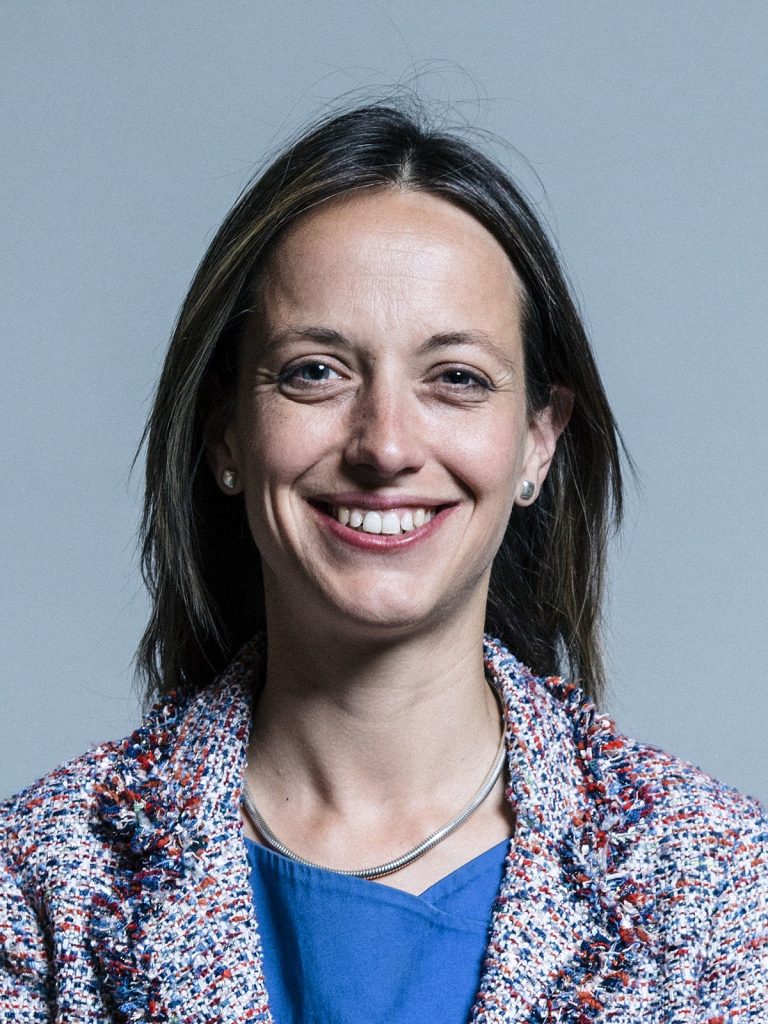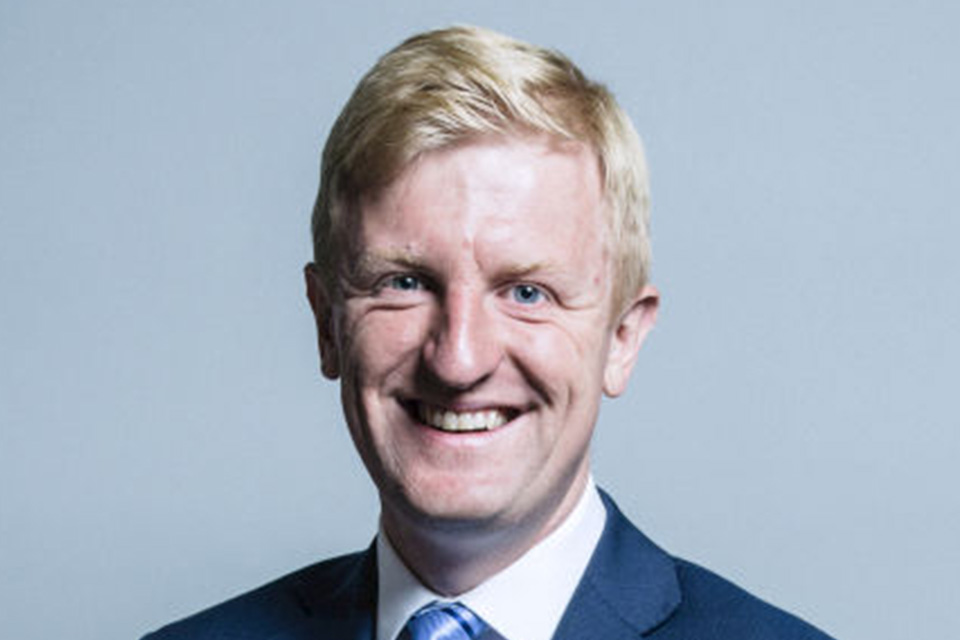Helen Whately – 2022 Speech on Pancreatic Cancer Awareness Month
The speech made by Helen Whately, the Minister of State at the Department for Health and Social Care, in the House of Commons on 8 November 2022.
I congratulate the hon. Member for Strangford (Jim Shannon) on securing this important debate, and for his work as chair of the APPG on pancreatic cancer. He is right: we should talk about pancreatic cancer; we should talk about how to improve survival rates and diagnosis rates; and we should talk about how we can raise awareness of pancreatic cancer. As we do so—including in this very debate—that in itself will make a difference, and if we do not debate this now, during Pancreatic Cancer Awareness Month, then when? I believe in seizing the moment.
I welcome the speeches from the hon. Members for Strangford, for East Dunbartonshire (Amy Callaghan) and for Upper Bann (Carla Lockhart) and my hon. Friends the Members for Stroud (Siobhan Baillie) and for Carshalton and Wallington (Elliot Colburn), who also seized this moment to speak about pancreatic cancer. The hon. Member for Strangford spoke movingly about Rebecca Buggs, whose children were just eight and nine years old at the time she had surgery. I am very glad that because she was diagnosed early, she was able to have surgery, but we know that, sadly, her experience is the exception not the rule.
The hon. Member spoke about the importance of raising awareness of symptoms such as stomach and back pain, indigestion, unexplained weight loss and jaundice, and the importance of getting those symptoms checked if there is no explanation. He also spoke about research as the key to earlier diagnosis. On one of his questions, I will answer straightaway that, yes, I would be delighted to join him for a meeting with Pancreatic Cancer UK. I will come to his other questions as I go through my speech.
My hon. Friend the Member for Stroud mentioned that she wants to help everybody and, knowing her well as a colleague, I know that that is absolutely true. She also mentioned the catchphrase, “The clue is in the loo,” as mentioned by other hon. Members. She spoke movingly about one of her constituents, a young woman who spent five years going to and from her GP with symptoms, including fatigue and bloating, which brought to life how hard this cancer is to detect. She also talked about the PERT treatment, which I will come to in a moment.
It is very good to see the hon. Member for East Dunbartonshire, a former chair of the APPG, here and to hear her speaking so eloquently in this debate. She spoke about Barbara, a PE teacher, and about the healthy life she lived. Barbara went many times to get a diagnosis, but it took almost 18 months to get one. Again, sadly, that brought to life how hard this cancer is to detect.
I thank my hon. Friend the Member for Carshalton and Wallington for acknowledging the work that the Government have done, particularly on raising awareness for pancreatic cancer. He talked about the importance of the workforce, which I will come to. He also asked me to visit the Royal Marsden, of which he is rightly proud, and which I would be delighted to do.
The hon. Member for Upper Bann spoke about the importance of access to GPs. She called for more funding into research, and said, rightly, that time matters.
I will come to many of the points that hon. Members have raised, but first, I believe in saying it as it is. Nearly 10,000 people a year are diagnosed with pancreatic cancer, and that figure has steadily increased since 2013. Diagnosis rates increase with age, and from the mid-40s onwards pancreatic cancer is more common in men than in women. Just under a quarter of pancreatic cancers are diagnosed at an early stage, so three quarters are not. About 40% of diagnoses follow an emergency presentation. The one-year survival rate is just 27% and the five-year survival rate is only 7.8%. Although those figures have improved in the past 10 years, they are still bleak for anyone who receives a diagnosis and for their loved ones. That is why it is right to talk about pancreatic cancer.
As with many other cancers, early diagnosis of pancreatic cancer is crucial so that there is the opportunity for successful treatment. One of the Government’s healthcare priorities is to improve early diagnosis of all cancers, and to achieve 75% diagnosis at stage 1 or stage 2 by 2028, compared with the current rate of about 50%. We have opened 91 community diagnostic centres, which have carried out 2 million extra scans, tests and checks, including cancer tests. We are rolling out non-specific symptom pathways so that people with symptoms such as weight loss or fatigue are either diagnosed or have cancer ruled out. We are encouraging people to go and get their symptoms checked. The NHS’s “Help Us, Help You” campaign tackles the barriers that prevent some people from getting their symptoms checked, such as fear about what might be found.
The hon. Member for Enfield North (Feryal Clark) talked about waiting times, and I assure her that we are tackling them. This August, more than 19,000 patients saw an upper gastrointestinal specialist, compared with 17,600 last August, and 17% more patients have seen a specialist within the two-week performance standard. That said, I recognise that the NHS is still not hitting the standard for enough people—it is currently 83%, compared with the 93% standard—so we will continue to support the NHS’s efforts to tackle waiting lists and backlogs.
On treatment, credit is due to hard-working NHS staff who have increased cancer treatment levels to 107%, compared with pre-pandemic levels. The cancer drugs fund has helped more than 80,000 patients, and we are investing £5.4 million in five new national clinical audits of cancer, one of which is focused on pancreatic cancer.
As several hon. Members said, the key to making a big leap forward in survival rates for diseases such as pancreatic cancer is research—research into tests that will achieve earlier diagnosis and research into treatments. The Government spend £1 billion a year on health research through the National Institute for Health and Care Research. The NIHR has funded seven research projects for pancreatic cancer since 2019, with a committed spend of about £3.6 million. That is about 5% of the NIHR’s total funding for cancer research, which is over £73.5 million.
Jim Shannon
I referred to the fact that Pancreatic Cancer UK has raised £10 million for research every year, and one of its requests is that the Government match that. I thank the Government very much for the £3.6 million that is going to pancreatic cancer, but is it possible for that extra bit of effort to be made and for the Government to match the charity’s £10 million? I do not want to put the Minister on the spot, but I really do think that is an important issue.
Helen Whately
I absolutely hear the hon. Gentleman’s request, which is for match funding for the funding contributed by Pancreatic Cancer UK. I will say two things about that. Another function of the NIHR is to support research where the funding comes from other organisations; it already does that. In fact, it has supported 70 pancreatic cancer-related studies that have been funded by others.
The other point, which the hon. Gentleman may be aware of, is that the NIHR does not actually ringfence funding for specific diseases. That is similar to his match funding point. The NIHR is ready to fund research. It looks at applications for funding from the research community and then allocates that funding by looking at the merits of the proposal. We should encourage more bids for funding for pancreatic cancer research and more bids to go into the NIHR, which would then enable it to allocate more funding. I am assured the NIHR stands ready to fund pancreatic cancer research; it is about getting those applications in to carry out that research. I could publish a highlight notice to flag to the research community the importance of pancreatic cancer, which may go some way to achieving what the hon. Gentleman seeks.
My hon. Friend the Member for Stroud spoke about PERT and asked why it is not prescribed for more people. National Institute for Health and Care Excellence guideline NG85 recommends that PERT be offered to patients with inoperable pancreatic cancer, and NICE includes PERT in its quality standard for pancreatic cancer. NICE guidelines do not replace clinical judgment. They are not mandatory; they are guidelines. However, it is clear that PERT should be discussed between a doctor and a patient so a clinical decision can be made. I heard what my hon. Friend called for and I will look into whether there is evidence that such discussions between doctor and patient are not happening.
My hon. Friend the Member for Carshalton and Wallington spoke about the importance of the workforce and, as the daughter of two NHS doctors and a former Minister for the NHS workforce, I agree with him. In essence, the NHS is its workforce, and I am proud that we are on track to achieve our ambition of 50,000 more nurses. Talking specifically about the cancer workforce, the workforce plan published in 2017 set an ambition to increase the workforce by 1,500 full-time equivalents by 2021. That has been achieved and, in fact, exceeded by 226 staff members.
Since then, Health Education England has been taking forward the priorities in the cancer workforce plan, with an additional £50 million of funding in the last financial year and this one. Also, a significant proportion of the elective recovery funding—£8 billion in the next two years—will be spent on workforce, both on capacity and skills. I assure my hon. Friend that, as the Minister with oversight of cancer care, I will look carefully at whether we have the necessary workforce coming on track now and in the future to achieve our ambitions and aspirations for cancer care.
The hon. Member for Strangford and several others asked about the 10-year cancer plan, and I know hon. Members are keen to hear about progress. More than 5,000 individuals and organisations responded to the Government’s call for evidence. The Government are considering the responses and the next steps, so I may have to disappoint some colleagues who may want to know more, because that is as far as I will go today. I assure hon. Members that I know how strongly they and their constituents feel about the matter.
I have welcomed this debate as a chance to talk about all the work going on to improve cancer diagnosis, treatment and survival rates, and crucially, to talk specifically about pancreatic cancer. Not least because raising awareness of pancreatic cancer is, in itself, an important step towards improving people’s chances of survival, raising awareness of the symptoms and, in turn, encouraging people to contact their GP and get themselves checked. I pay tribute to everyone involved in Pancreatic Cancer Awareness Month, particularly to Pancreatic Cancer UK and to everyone taking part, whether that is walking 30 km this month or doing their own thing to raise funds and awareness. I thank them all for what they are doing. In turn, I will do what I can in Government to support all those efforts and to improve the chances for anyone suffering from pancreatic cancer.


